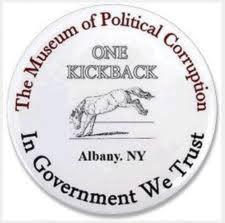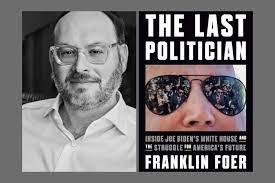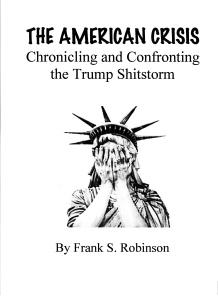
Our democracy is in deep trouble. A big part of that is people unable to tell truth from lies (indeed, reality versus downright crazy) and which news sources to trust. A big part of that has been Trump, calling mainstream media “the enemy of the people.” Really because it’s the enemy of his lies.
Last week Albany had three great events spotlighting journalism’s importance in serving democracy. It “dies in darkness,” the saying goes. It’s all about government being accountable to citizens — which requires having the necessary information — simply knowing what’s going on.

First was the annual Nelly Bly investigative journalism award. Bly was the pen name of an intrepid reporter (1864-1922) who exposed a lot of bad stuff. The award is bestowed by the (so far virtual) Museum of Political Corruption, founded and run by Bruce Roter, in Albany, certainly an appropriate place for it.
This year’s honoree was Anna Wolfe, just 28, a reporter with Mississippi Today. She subsequently also won a Pulitzer. Wolfe unearthed one of her state’s biggest scandals ever. It gets millions from the Feds for anti-poverty efforts, while rejecting 99% of benefit applications.

So where was the money going? Turned out the system was being hugely scammed by insiders and their cronies — who, of course, were not exactly poor. Without dogged journalism like Wolfe’s, nobody would have been wise to this outrage.
Next day featured a panel discussion hosted by the Albany Times-Union, focused on the widespread recession of local journalism, with 30,000 reporters — half the total — lost over the past decade or so.

Mainly it’s because the newspaper business model is under extreme pressure. Papers used to be sustained by print ads, but now advertisers have a lot of other options, especially online. While furthermore, newspaper circulation declines as readers too migrate to online options. Meaning fewer eyeballs for print ads. Newspapers try to compensate by exploiting the internet themselves, but that’s not producing enough revenue.
Another problem is that economic vulture outfits have been buying up local newspapers and then stripping their assets, decimating news teams.
While big city newspapers are hanging in there, the effects of all this are greater for small local papers, resulting in about a fifth of Americans living in “news deserts,” with no source for nitty-gritty civic information. Corruption thrives where “nobody’s minding the store.”
The third event was a pair of panel discussions hosted by the New York State Writers Institute, with the heading “Telling the Truth — The Struggle for America’s Future,” the fifth in an annual series. When the emcee, Institute director Paul Grondahl, quipped about a need for its continuation, the audience laughed. Because they get it.
Unfortunately, too many others don’t. Lacking a foundational baseline understanding of our civic/governmental landscape, making their political notions clueless. (This was what I asked about, both here and at the prior event. Can’t say I got good answers. It’s a wicked problem.)

The first panel featured Franklin Foer, author of The Last Politician, about the Biden presidency, and Miles Taylor, former Department of Homeland Security chief of staff and author of the famous 2018 New York Times “Anonymous” essay — a Trump administration insider’s account of how people like him struggled to stop nightmare stuff.
Taylor quoted his boss, Trump’s Chief of Staff John Kelly, that the picture was “not as bad as it looks” but “so much worse.” Also calling Trump a “very very evil man.” Who terrified most staffers into silence. (But Taylor played some hair-raising voicemail messages he got from Trump loyalists, after his authorship was revealed.)
Foer assessed President Biden candidly, but with overall admiration. Addressing the age issue, and Biden’s occasional verbal lapses, he said, “Forgetting someone’s name is different from being a lunatic.”

Taylor said Trump was not “played” by Putin — rather, he wanted to align with Russia, admiring and even identifying with Putin and other autocrats. Loving the idea of total power. Striving to push the envelope in that regard, even seeking to invoke “magical powers” (Trump’s actual words). January 6 was the culmination.
Horrible as all that was, a key takeaway from the discussion was that a second Trump term would be “vastly more dangerous.” He’s said “retribution” will be its watchword. Claiming to be the victim of unjustified political prosecutions, Trump promises exactly that for his own political opponents.

In public discourse it’s generally advisable to avoid invoking Nazis or Hitler. Yet here the parallels are stark. As with the sinister “enemy of the people” language, etc. — and now Trump’s recent “vermin” speech, a truly unnerving echo of you-know-who. But Trump cultists, oblivious to the sheer insanity afoot, are marching over the cliff.
This segues to the evening’s second panel, titled “The American Backlash,” with Jeff Sharlet and Juliet Hooker, both authors of books about grievance politics.

Obama’s presidency was important not for anything actually done but more for its symbolism, with a segment of white Americans fearing loss of what they consider their rightful place. With “take our country back” rhetoric and a sense of victimhood.
Now it has enfolded not just racial but sexual politics. “White male fragility;” the whole “incel” thing (“involuntary celibacy”). Venting against sexual nonconformism, especially trans people.
They seem to feel democracy is no longer working for them, and they’re done with it. Aiming to prevail by other means — violence if necessary. Sharlet’s book subtitle references “A Slow Civil War” — some people having already psychologically seceded. And it all amounts to an “aesthetic of fascism,” that Trump has brought forth and legitimized. Idealizing the strongman.

Apocalyptic rhetoric drives this. But Sharlet sees some of that on the other side too, using words like “crisis.” Well, my own 2022 book was titled The American Crisis. We’ve indeed been in the throes of one since 2016 — as these discussions made clear.
Finally, Hooker was asked if anything gives her hope. Young people, she answered, citing the Parkland students who organized against gun madness.
If only young people would vote at rates comparable to old fools. Can sensible Americans take our country back?
